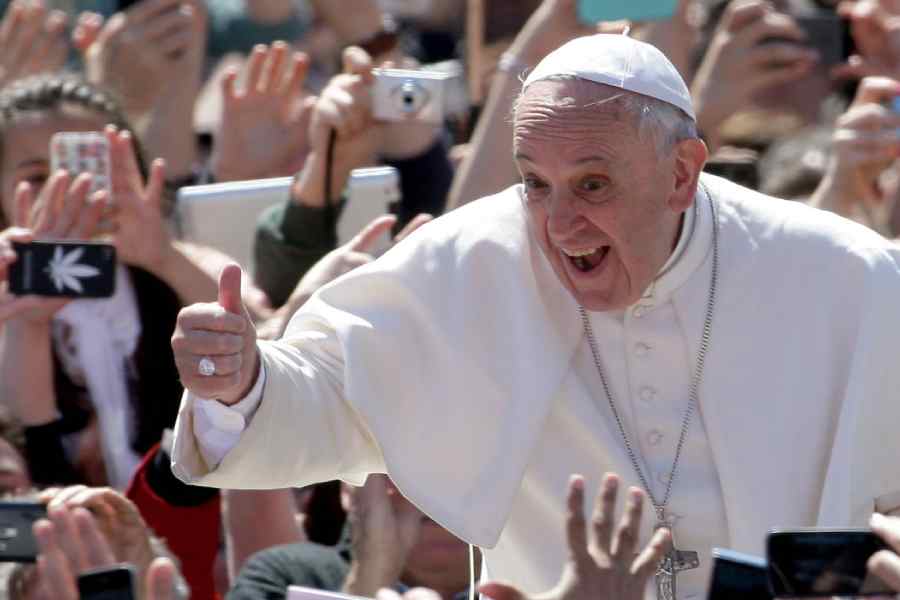LIFE: MY STORY THROUGH HISTORY
By Pope Francis
HarperOne, Rs 599
In a scene towards the end of the film, The Two Popes, the Argentine cardinal, Jorge Mario Bergoglio, after becoming the pope, is shown turning down most of the luxurious accessories that are customary for the occupant of the throne of Saint Peter. He chooses, instead, to wear a pectoral cross and his orthopaedic shoes and live in a humble lodging in place of the opulent Apostolic Palace in the Vatican. This radical approach to the papacy, characterised by a modest lifestyle and a refreshing candour on the tenets of Christianity, which has made Pope Francis a divisive figure within the orthodox Church, is the beating heart of his autobiography.
Life: My Story Through History, which Francis co-wrote with Fabio Marchese Ragona, an Italian journalist, is an exercise in historical record-keeping. Francis recounts his life experiences, including his humble upbringing in a family of Italian immigrants in Buenos Aires, his embracing of the calling of priesthood, his political activism, his deliberations on moral theology as well as his decision to take on a role, at the age of 76, that he never aspired for — all this through such epochal events in world history as the extermination of Jews in Europe, the atomic bombing of Japan in 1945, McCarthyism, the moon landing, the Videla Coup in Argentina, the 9/11 terror attack, the 2008 recession and the Covid-19 pandemic. In these recountings, Ragona’s objective narration offers a prelude to Francis’s reminiscing.
Although candid and informal, Francis’s voice is economical when it comes to
revealing the controversial aspects of his life. While he is forthright about a “minor lapse” during his seminary years that led to him being “dazzled by a particular young woman”, more light could have been thrown on the 2005 papal conclave that almost elected him as the pontiff in place of Cardinal Ratzinger and the sex abuse scandals that have dented the Church’s moral standing. In contrast, two episodes — his perception of “God’s plan” for him during a confession and his anointment as the pope — are described in detail.
In a significant departure from the autobiographical accounts of his predecessors, Life, shorn of jargon-based theologising, projects Pope Francis as a religious leader committed to his “evangelist” goals about real issues like migration, anti-Semitism and Fiducia Supplicans, even though his views on abortion rights and gay marriage remain markedly archaic. This, then, is a story about a clergyman layman responding to the world, thereby attempting to build a bridge between the Church and its flock.










